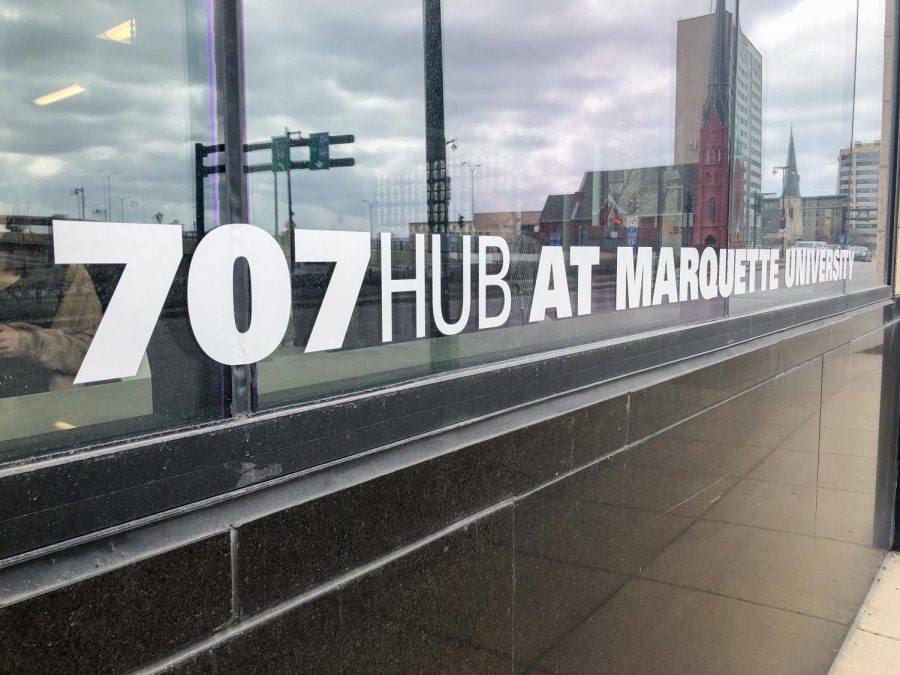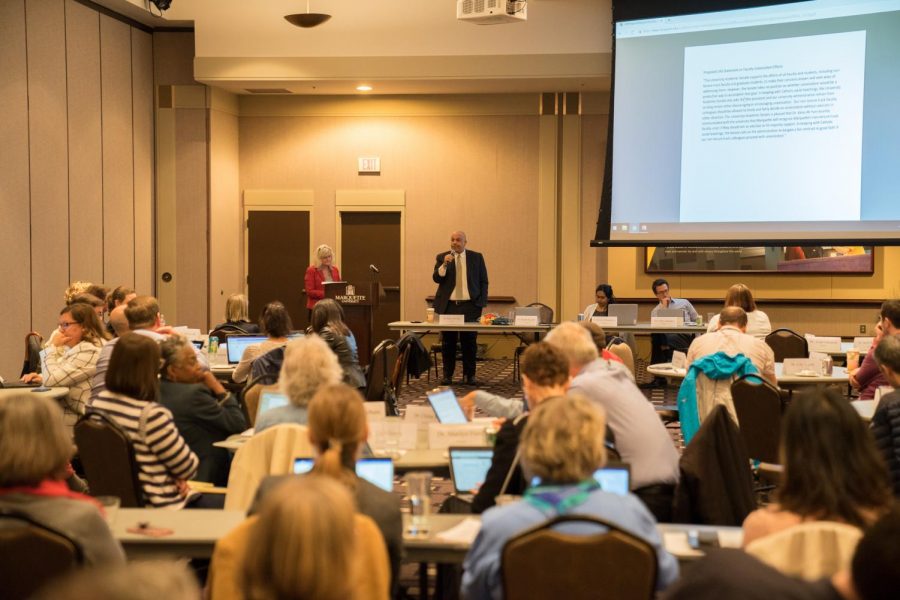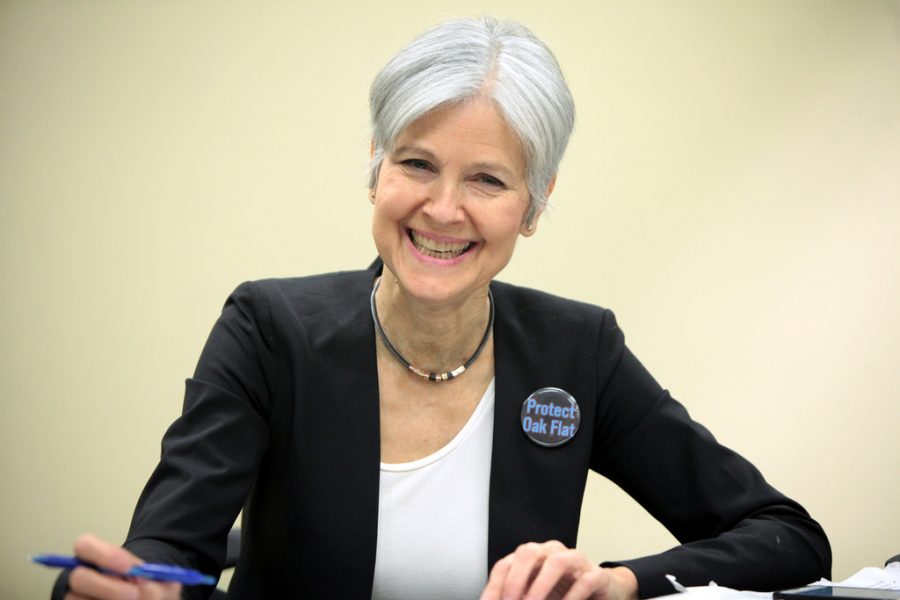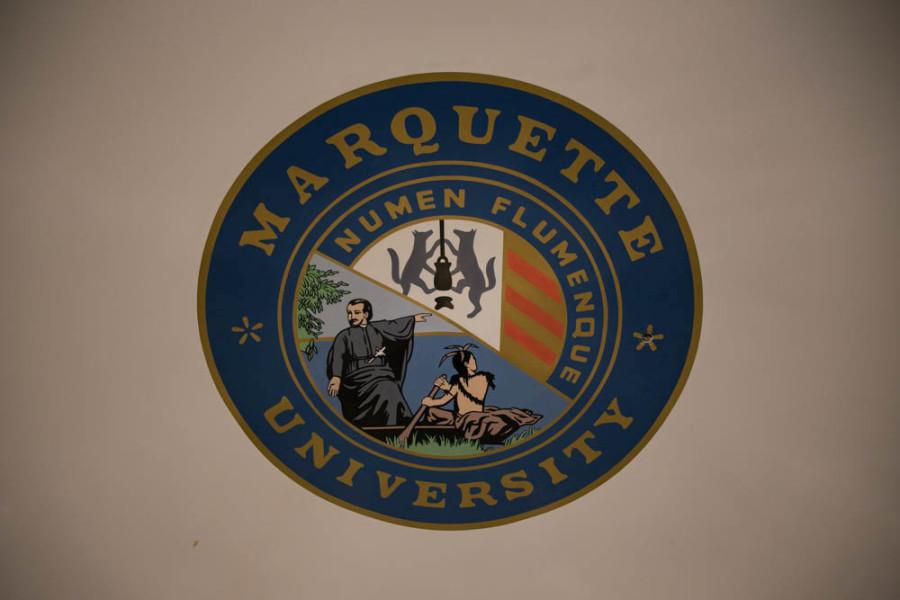Near West Side Partners and its Marquette representatives met Wednesday and discussed initiatives to revitalize the neighborhoods surrounding campus.
NWSP works to rejuvenate and sustain businesses and residences in the seven neighborhoods that make up the Near West Side region. The region’s boundaries are defined by Highway 41 on the west, I-43 on the east, I-94 on the south and Vilet Street and Highland Boulevard on the north.
The forum, open to the Marquette community, included an eight-person panel consisting of:
- Dan Bergen, assistant director of university apartments and off-campus student services
- Kelsey Otero of Marquette’s Social Innovation Initiative
- Patrick Kennelly, director of Marquette’s Center for Peacemaking
- Zack Wallace, Marquette Student Government president
- Amber Wichowsky, assistant professor of political science
- Sherri Walker, program associate of Marquette’s Center for Peacemaking
- Kelly Walker, coordinator for Marquette’s community service programs
- Keith Stanley, executive director of Near West Side Partners, Inc. and Avenues West Association
After University President Michael Lovell went through a timeline of work done by NWSP over the past year, the forum opened up to audience questions. Lovell, the panel and Rana Altenburg, vice president of the Office of Public Affairs and president of NWSP’s Board of Directors, answered the questions.
One attendee asked about improving food offerings in the Avenues West neighborhood, which is considered a food desert by the United States Department of Agriculture. Lovell said there are four supermarkets the NWSP is in talks with.
“Our highest priority is bringing a supermarket into this neighborhood,” Lovell said. “We’re getting very close. We’ve been trying to get this done since our inception. We’re learning a lot more about what it will take to get a supermarket here, so we’ll be able to be very proactive about creating an environment where a supermarket can be successful.”
An attendee was concerned about affordable housing opportunities for members of the Near West Side community and the likelihood that they will be displaced.
Arthur Heitzer, an attorney and Marquette graduate, said he has serious reservations about Marquette’s involvement in its surrounding community.
“People in this neighborhood do not feel comfortable and welcomed at Marquette by and large,” Heitzer said. “This university could do so much more.”
After the forum, Heitzer said NWSP needs to focus more on makings its programs inviting and attractive. He said people may decide where they want to live by considering the nearby educational and cultural opportunities.
“I think the idea is great and well-intended, and it looks as if (NWSP) is trying to get together some resources,” said Sandra Edhlund, a forum attendee. “I hope (NWSP) opens themselves up to being guided by the neighborhood experiences.”
Edhlund said she wants to know more about NWSP’s plans and the opportunities for residents to get involved.
Abigail Krieck, a sophomore in the College of Arts & Sciences, works in the Center for Peacemaking and surveys for the NWSP.
“I thought it was interesting,” Krieck said about the forum. “I’m worried that it got a little misinterpreted by some people as Marquette is doing this project, where there are so many other people involved.”
Although Krieck a member of the Marquette community, she said she does not feel part of the Near West Side community.
“I think that one of the main reasons for that is because Lovell talks about how Brady Street and the Third Ward have such success with their community engagement and how we as Marquette students go over there all the time,” Krieck said. “I think one of the basic reasons for that is because they have social gathering places.”





